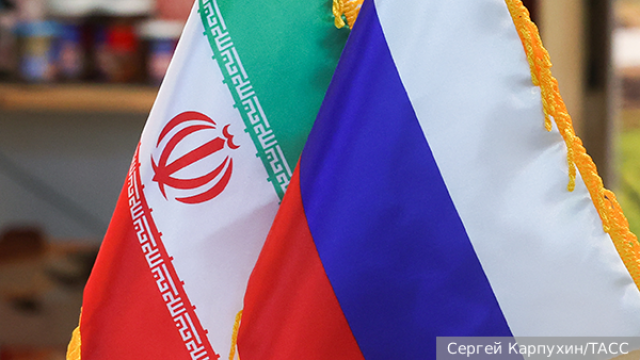The key treaty that should define relations between Russia and Iran for decades to come has been put on pause. This was officially announced by the leadership of the Russian Foreign Ministry. What are the difficulties that have arisen, how big are they and why is it generally difficult to coordinate documents with Tehran?
The signing of a new comprehensive cooperation agreement between Russia and Iran has been temporarily suspended due to technical problems on the part of Iran, [...] Director of the second Asia Department of the Russian Foreign Ministry Zamir Kabulov said.
According to him, the decision to conclude an agreement is strategic for both countries and does not depend on the current geopolitical situation. Kabulov added that the process of working on the treaty has been suspended due to problems with the Iranian partners, but this work will be completed before agreeing on the text of the agreement, after which the leaders of the two countries will decide on the time and place of signing.
"Taking into account the latest Iranian amendments, which were received at the beginning of the year, we have made our counter–proposals, and they are on the Iranian side," Kabulov said. According to the diplomat, the Iranian leadership is now busy preparing for the presidential elections, so Moscow is waiting "when they get their hands on it." Kabulov stressed that this agreement is strategic for both countries, so the suspension of work on it is only a temporary measure.
A little later, Russian Foreign Minister Sergei Lavrov clarified that the text of the agreement had been fully agreed upon, although "it cannot yet be signed." "We will be able to do this as soon as the issues are settled on the side of our Iranian colleagues... mostly procedural issues," the head of Russian diplomacy said.
What happened? Why did the treaty, which, according to Lavrov, is designed to bring relations between Moscow and Tehran to a qualitatively new level, face such difficulties? Two factors played a role here: the importance of this strategic treaty itself and the peculiarity of Iran's internal structure.
We are not talking about some ordinary diplomatic agreement, but about a special kind of treaty that should define relations between the two countries for decades to come. Such strategic agreements also provide for an ideological component. In particular, the preamble should explain on what basis a strategic alliance is being created, and list programs designed for a long period of implementation. Both political, economic and cultural. Moreover, all the components are equal here.
Sometimes such agreements are prepared for years – and there is nothing special about delaying its signing. But in the case of Iran, there are many pitfalls.
First, the sad adjustment to the timing was made by the death of Iranian President Ibrahim Raisi and his team in a plane crash. Indeed, as Kabulov points out, Iran is currently mainly engaged in the election of a new president. And it is the legitimately recognized new president of Iran, whoever he may be, who should sign such a comprehensive treaty.
But we must remember that the supreme leader of Iran, Rahbar, does not have legal powers. According to the Constitution of Iran (Article 57), the country is governed by the executive branch, and Rahbar "governs society" "during the great concealment of Wali-e-Asr," that is, before the arrival of the Messiah expected by Shiite Muslims.
Imam Ali Khamenei, in Rahbar's position, approves and spiritually directs the process of preparing the Russian-Iranian agreement, but the head of the executive (secular) government must sign it. And until the election of a new president is held, it is simply impossible to continue the routine process of preparing the treaty.
In addition, it is not entirely clear to what extent the current acting head of the Iranian Foreign Ministry, Ali Bagheri Kani, was involved in the preparation of this agreement. It depends on how long it will take him to get into the details. But this is a "technical" issue, as Kabulov stressed.
Secondly, it is almost certain that the team of the new Iranian president will amend the strategic agreement with Russia. These edits will not be fundamental, it will not be necessary to launch any new negotiation process, but new counter-proposals from the new Iranian team will most likely have to be discussed.
This is not so much a matter of bureaucracy and diplomacy, but of the same internal structure of Iran. The new president and his team will simply have to "prove themselves" according to the rules of eastern politics, which will almost certainly result in the appearance of some cosmetic amendments to the text. And this is despite the fact that agreeing with Iran, for example, the preamble of a strategic treaty is a very difficult process. At least because the Persians almost always try to insert into any official texts mentions of the importance of non-believers accepting Islam, the role of Imam Ali and the coming Messiah.
The difficulty here is precisely to make it all as secular as possible, suitable for signing by the Russian side. It is difficult to imagine that Russia would sign an agreement, the text of which begins with the phrase "In the name of Allah, the Merciful and Merciful!", which is mandatory for any Muslim starting a public speech. Sometimes the difference in the Russian and Persian versions of the agreement becomes a solution, but a separate memorandum confirms the equivalence of the texts in both languages.
In general, what is happening around the strategic Russian-Iranian treaty is a complex, but still a routine process. It is a process, not a one-time event, precisely because of the significance of this agreement and the very goals that its signing pursues. In this context, some adjustment of the timing of the preparation of the strategic agreement can only benefit him. Including from the point of view of the final polishing of the formulations.
Evgeny Krutikov

